With both the skincare and supplement industry booming, it’s no surprise that there’s an endless selection of skin-focused supplements promising clear, healthy, and youthful skin. They promise it all, don’t they? Some of these skin supplements claim to reduce cystic acne in 4 days. Well, I hate to break it to you, but a lot of this is just clever marketing. While these skin supplements can work for some people, there are quite a few reasons why I’m not their biggest fan. This is an honest review from a nutritionist who recommends supplements on a daily basis.
Skin supplements, do they work?
Every Skin is Different
While a lot of us struggle with similar conditions—acne, eczema, rosacea, psoriasis, the list goes on. We’re all different. Even if two people have the same skin condition, the root cause behind it might be completely different.
Your acne isn’t necessarily caused by high testosterone, so taking saw palmetto might do nothing for you.
Yes, you have eczema, but does that mean you need this specific eczema-targeted probiotic? Your skin might actually be triggered by a yeast overgrowth, which needs a completely different approach.
This is one of my biggest gripes with skin supplements—they often take a one-size-fits-all approach when, in reality, skin health is highly individual. Your lifestyle, diet, gut health, hormone levels, genetics, stress levels, and environmental exposures all play a role in how your skin behaves.
So before grabbing the latest “miracle” supplement, it’s important to ask: is this actually targeting my unique skin needs?
Skin-focused supplements are generic
Another issue with skin-focused supplements is that they tend to be generic. They are often filled with ingredients that are generally good for the skin—things like vitamin A, vitamin C, and zinc. While these nutrients do play a role in skin health, they may not address your specific skin concerns. Just because a supplement contains “skin-friendly” ingredients doesn’t mean it will fix the actual reason behind your breakouts, dryness, or irritation.
For example, vitamin C is great for collagen production and brightening the skin, but if your skin issues are caused by chronic inflammation from gut imbalances, taking vitamin C won’t solve the problem. Similarly, zinc is beneficial for wound healing and reducing inflammation, but if your acne is driven by a food intolerance or stress, taking zinc alone won’t provide a long-term fix.
If the dosage is wrong, you won’t get benefits
Most skin-focused supplements contain a blend of vitamins, minerals, and herbs that are known to be beneficial for the skin. Sounds promising, right? The problem is that the dosages are often too low to make a real impact.
For example, zinc is commonly included in acne supplements, but if the dose is too low, it’s unlikely to influence oil production or inflammation in a meaningful way. Similarly, vitamin C might be added to a “collagen-boosting” formula, but if it’s only present in trace amounts, it’s not going to do much for your skin.
What’s the point of taking a supplement if it doesn’t actually provide therapeutic benefits? If you truly need a nutrient in a higher dose, you’re often better off supplementing with it individually rather than relying on a generic skin formula.
The quality of nutrients – Are you even absorbing them?
Another major issue with many skin supplements is the form of nutrients they use. Some of the most expensive skin supplements on the market contain poor-quality, poorly absorbed forms of vitamins and minerals.
For example, many supplements contain magnesium oxide, which has poor bioavailability compared to magnesium glycinate or citrate. Some supplements also use cheap, ineffective forms of vitamins that the body struggles to absorb.
When looking at a supplement, always check what form the nutrients are in. Just because a product is marketed as “premium” or “scientifically formulated” doesn’t mean it contains high-quality ingredients that your body can actually use effectively.
Are they fixing your root cause?
Let’s say you take a high dose of vitamin A, and your acne improves—great! But then you stop taking it, and the breakouts come right back. Did the supplement actually fix anything? Not really.
Inflammation is a key driver of many skin conditions, and while certain nutrients can help reduce it temporarily, they’re not addressing why your body is inflamed in the first place. Do you have an overgrowth of harmful gut bacteria? An underlying infection triggering your immune system? A food sensitivity that’s causing chronic inflammation? If the root cause isn’t dealt with, the problem will keep returning no matter how many skin supplements you take.
Think of it like this: if there’s a fire in your house, throwing a bucket of water on it might help, but if you don’t remove the source of the fire, it’s just going to keep reigniting. Supplements might help “reduce the fire,” but if you don’t stop fueling it, the problem isn’t truly solved.
Test Before Supplementing – Because Guessing Isn’t the Best Strategy
One of the biggest mistakes people make is taking supplements without actually knowing what their body needs. Just because a supplement worked for your friend or an influencer swears by it doesn’t mean it’s the right choice for you.
For example, taking too much vitamin A can lead to toxicity and cause issues like dry skin, dizziness, and even liver damage. Zinc, when taken in excess, can deplete copper levels and throw off your mineral balance. Some supplements can also interact with medications which can actually cause some serious side effects.
This is why testing is crucial. Before reaching for a supplement, consider working with a professional to check your vitamin and mineral levels, hormone balance, and gut health. This way, you’ll know exactly what you do and don’t need, rather than playing the guessing game.
Supplements Should Be Used With Purpose
I’ll never recommend supplements just for the sake of it. As a nutritionist, supplements make up a big part of my practice with clients—but we only use supplements that are actually needed. They should always be used alongside a healthy, balanced diet and be specific to what your body requires (which you’ll only truly know through testing). Supplements are not a substitute for good nutrition or a quick fix for deeper health imbalances.
So, What Should You Do Instead?
If you’re struggling with a skin issue, here’s what I recommend instead of blindly taking skin-focused supplements:
Identify the Root Cause
Work with a healthcare professional to figure out what’s actually triggering your skin issues. This could involve testing for hormone imbalances, gut health issues, or food sensitivities.
Focus on a Nutrient-Dense Diet
Getting your nutrients from whole foods should always be the priority. Think plenty of colourful fruits and vegetables, healthy fats, quality protein, and gut-friendly foods like fermented veggies.
Address Gut Health
Your gut and skin are deeply connected. If you have digestive issues, bloating, or frequent breakouts, it might be worth looking into what exactly is going on in your gut.
Balance Your Lifestyle
Sleep, stress, hydration, and movement all play a role in skin health. No supplement can outdo poor lifestyle habits.
Supplement Smartly (If Needed)
If testing shows that you’re truly deficient in something, targeted supplementation can be helpful. But make sure you’re taking the right supplement in the right dose based on your unique needs.
Need some help?
Skin-focused supplements aren’t inherently bad, but they’re not a magic fix. Many are generic formulas filled with low-quality ingredients in low doses that may not provide real benefits. Instead of spending money on trending skin pills, focus on understanding why your skin is acting up in the first place.
When it comes to skincare—both topical and internal—personalisation is key. Test, don’t guess. And remember, clear skin isn’t just about what you take, but about how you nourish your body as a whole.
If you need some help working out what’s best for you and your skin. Get in touch and we can get started on your healthy skin journey.
What are your thoughts on skin-focused supplements? Have they worked for you, or have you been let down by them? Let’s chat in the comments!


0 Comments